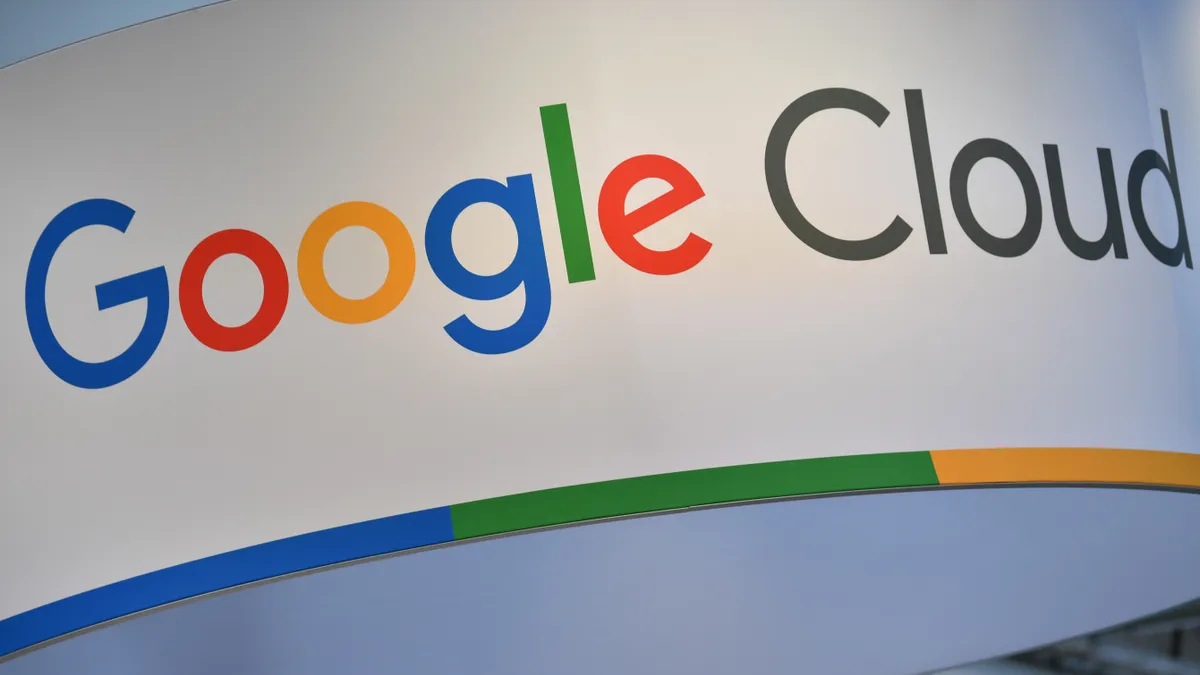Dive Brief:
- Google accused Microsoft of stifling cloud competition in the European Union and filed a formal complaint with the European Commission, the company said Wednesday in an announcement.
- “Microsoft’s licensing terms restrict EU customers from moving their current Microsoft workloads to competitors’ clouds — despite there being no technical barriers to doing so — or impose what Microsoft admits is a striking 400% price markup,” Google said.
- Microsoft settled a similar legal action filed by Cloud Infrastructure Service Providers in Europe in July, offering a number of concessions to the EU cloud consortium. As part of the agreement, the CISPE gave Microsoft nine months to ease software licensing restrictions and allow European cloud providers to host various Azure services.
Dive Insight:
Microsoft continues to push back against accusations of anticompetitive business practices across multiple regions.
The software giant suffered a regulatory setback in June, when the European Commission issued a preliminary ruling that Microsoft violated EU antitrust statutes by bundling Teams with Office 365 and Microsoft 365.
Microsoft, which commands roughly one-quarter of the global cloud market, preemptively decoupled the collaboration tool from its enterprise productivity suites globally in April, after doing so in the European Economic Area and Switzerland eight months earlier.
Google, the third largest hyperscaler behind Microsoft and market leader AWS, is no stranger to cloud conflicts. The outlines of Google’s EU complaint were evident in its response to a Federal Trade Commission inquiry into cloud market competition opened in March 2023.
“A small number of legacy on-premises software providers, such as Microsoft, Oracle and others, are using their strong positions in non-cloud markets, such as productivity software, server operating systems and applications, and desktop operating systems, to give their own cloud products an unearned advantage and lock customers into their cloud ecosystems,” Google told the FTC in June 2023.
A similar regulatory conflict is playing out in the U.K., where Ofcom referred the public cloud infrastructure market to the Competition and Markets Authority for further scrutiny last year. The CMA raised concerns in May about barriers to multicloud adoption, including egress fees, discount incentives and restrictive software licenses.
AWS, Microsoft and Google removed egress fees for some workloads earlier this year.
In its Wednesday announcement, Google blasted Microsoft for 2019 software licensing changes that “imposed extreme financial penalties on businesses wanting to use Windows Server software on Azure’s closest competitors, such as Google Cloud and AWS."
“For those who choose to keep running Windows Server on competitors’ cloud platforms, Microsoft introduced additional obstacles over the last few years, such as limiting security patches and creating other interoperability barriers,” according to Google.
Microsoft told the U.K.'s CMA that its software license fees “do not materially raise costs for its competitors,” according a July hearing transcript.
The company said it does not believe the new allegations will gain traction in the EU.
“Microsoft settled amicably similar concerns raised by European cloud providers, even after Google hoped they would keep litigating,” a company spokesperson said in an email Wednesday. “Having failed to persuade European companies, we expect Google similarly will fail to persuade the European Commission.”














